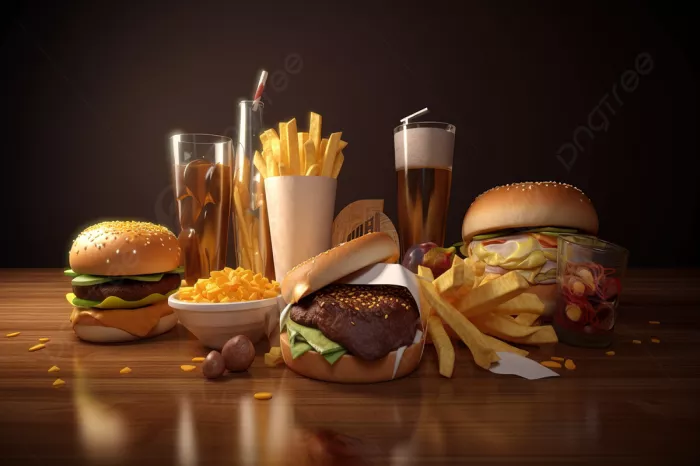LONDON — The British government has announced plans to ban junk food advertising on television and online in a bid to reduce rising obesity levels. Starting in 2025, the ban will prohibit junk food ads on TV from 5:30 a.m. to 9 p.m. and will apply to all paid online advertisements, including on-demand programs.
Health Minister Andrew Gwynne explained that the measure is aimed at reducing the strain on the National Health Service (NHS) caused by childhood obesity. Current figures show that one in three children in the UK is considered obese or overweight by age 11.
“These restrictions will help protect children from being exposed to unhealthy food and drink advertisements, which research shows influences their dietary choices from a young age,” Gwynne stated in a written address to the House of Commons.
Research Supports the Ban
Experts back the government’s plan, with Sabina Crowe, an assistant professor of economics at Northeastern University’s London campus, confirming that research shows a strong link between the amount of junk food advertising and consumption.
“There is a positive correlation between the amount of junk food ads someone is exposed to and how much they buy. Fewer ads should lead to less consumption, especially among children,” Crowe noted.
However, some experts argue the ban doesn’t address the root causes of childhood obesity. Dina Rabie, another professor at Northeastern University, suggested that the government should focus on improving nutritional education in schools and homes to more effectively reduce obesity rates.
“I wonder how effective this will be. Do kids really want junk food because they see it on TV, or because they’ve already tasted it and liked it?” Rabie questioned. She also expressed concerns about the cost-effectiveness of the policy, pointing out that enforcing the ban will be expensive without guaranteeing meaningful results.
Public Support for Action
Public opinion appears to favor the ban, with a YouGov survey revealing that many support restrictions on junk food advertisements. Around one in eight respondents supported banning TV and online ads targeting children. The government has emphasized that obesity-related issues cost the NHS £11.4 billion annually, with obesity now the second-leading preventable cause of cancer in the UK.
The problem is particularly concerning among younger children. NHS data from 2022 shows that one in ten children aged 4 to 5 is classified as obese, and by the time they reach 10-11 years old, the rate increases to nearly one in four.
Calls for Broader Action
Some experts, like Crowe, suggest that the ban could be even more effective if it extended to social media, which plays an increasingly influential role in children’s lives.
“Social media, especially platforms like TikTok, is popular with kids. If junk food ads aren’t restricted there, the impact of the ban will be limited,” Crowe argued.
Rabie proposed that the government could achieve greater success by investing in public health initiatives, such as healthier school meals and promoting exercise programs in schools. She also stressed the importance of educating parents about healthy eating, noting that parents are often the ones purchasing unhealthy foods for their children.
“Raising awareness about the importance of healthy eating could be more effective than just implementing a ban,” Rabie added.
An “Experiment Worth Trying”
While acknowledging criticisms, Crowe believes the ban is a step in the right direction and worth testing, even if the results aren’t perfect.
“Why not try the ban and see how it goes? We’re not hurting kids by limiting their exposure to these ads,” she said, suggesting that the ban could encourage companies to focus more on promoting healthier products.
Crowe concluded that, while junk food will still be widely available, the hope is that companies will reformulate their offerings to include more nutritious options, which could have long-term benefits for public health.
Related topics:
- Hotel101 Partners with Jollibee for Exclusive Promo Offer
- McDonald’s Plans to Redesign Former Pizza Hut in High Wycombe
- Manchester to Welcome Whataburger by Late 2025

